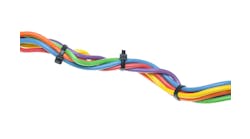Few of the marketing terms that arrived with the fourth industrial revolution capture an essential value proposition like the phrase “digital twin.” Imagine at your disposal a virtual replica of a physical object that includes not only the original computer-aided-design and finite-element analyses that describe a manufactured object’s dimensions and characteristics, but also the particular history of stresses and extremes the object has endured.
Informed by that history, the ideal digital twin would then be able to predict how those stresses affect the object’s qualities and responsiveness both today and in the future. Extend this concept to a system or system of systems—a jetliner or distillation tower, for instance—and the possibilities for optimization and prescriptive diagnostics quickly beggar the imagination.
So far though, most of what passes for a digital twin exists, not as an integrated facsimile of the system in question, but as a collection of disparate models. The tale of the blind men attempting to describe an elephant comes to mind: each is correct in his description of a different aspect of the elephant, but all fail to describe the creature in all of its elephant-ness.
Similarly, the engineering first-principles equations used to design a distillation tower don’t mix well with the analytical methods used to model its behavior based on operational data. But that all changed recently when long-time modeling and simulation powerhouse Aspen Technology unveiled its Aspen Hybrid Models, which effectively combine first-principles and analytical methods, including artificial intelligence, to deliver more comprehensive and more accurate models at enterprise speed and scale.
“Aspen Hybrid Models are a major advance in the field of chemical engineering,” says Dr. Karuna Potdar, vice president of Reliance Industries Ltd.’s Technology Centre of Excellence in Navi Mumbai, India. “Hybrid models are a major step forward in bringing together AspenTech’s process models and machine learning, and are a game changer in process engineering and plant improvement.”
The hybrid model capabilities were rolled out in conjunction with the company’s recent aspenONE, V12, release, which the company bills as “the first Industrial AI hybrid model capability that's purpose-built for the process industries and other capital-intensive industries.” The company’s methodology also enables customers to apply AI to critical processes without additional data-science expertise, and offers better support for users without deep domain expertise.
“The process industries and other capital-intensive industries are experiencing new levels of volatility in supply and demand, and the need to be agile in response to all market conditions requires a new approach to asset optimization,” says Antonio Pietri, president and CEO, Aspen Technology. “In addition, they face higher expectations for efficiency and profitability, and increasing pressure to meet sustainability targets. This next generation of industrial AI solutions will change how process industries work. The self-optimizing plant represents the future of operational excellence, and we continue our commitment to innovate and deliver solutions that can accelerate our customers’ journey toward it.”
Peter Reynolds, senior analyst, ARC Advisory Group, adds: “AI has the potential to enhance many industrial work processes, but most companies aren't well-equipped to bolt on AI themselves. AspenTech’s industry-specific applications with embedded AI will help companies accelerate transformation. While other technology strategies require asset owners to invest in complex platforms and data scientists, with embedded AI, users can get started right away improving margins and profitability.”
AspenTech's certainly not shy about touting aspenONE's new AI capabilities. But were I in charge of marketing, "a better digital twin" might make the portfolio, too.






